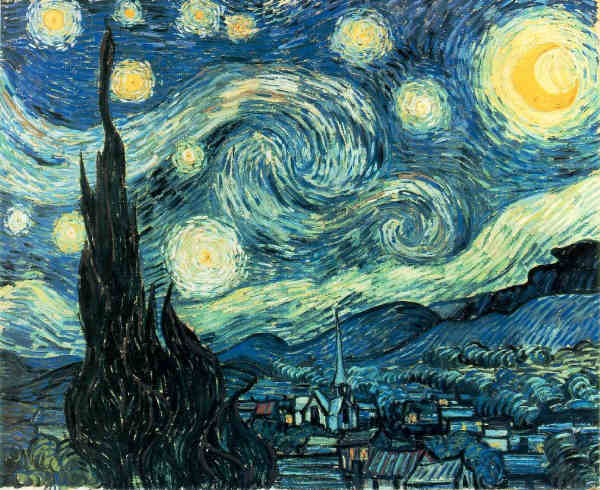A cool article from Ovi Magazine.
Arthur Schopenhauer's Concept of Art as Revelation
2008-10-28
“The Platonic Ideas are the adequate objectification of the will”
--Arthur Schopenhauer (from The World of as Will and Representation)
Schopenhauer's (1788-1860) conception of art has this in common with Aristotle and Kant’s conception of art: all three philosophers endow art with the greatest significance. Schopenhauer accepts Aristotle’s understanding of art as cognition but goes beyond Aristotle in considering art a revelation of the very nature of reality giving us access to metaphysical truths.
Like Plato and Kant before him Schopenhauer distinguishes appearance from reality-in-itself. The world revealed to us in our everyday experience is a mere representation, governed by the principles of sufficient reason—that everything that happens does so for some reason—and of individuation—that each person or object is a being distinct from every other.
The world revealed by science is simply a more abstract and systematic version of the world of experience. But where Kant claims that reality in itself is unknowable to being such as ourselves, Schopenhauer believes that we have access to it through our own wills. The truth revealed by a contemplation of willing is that reality consists of nothing but endless striving, and the world as it appears is mere illusion. Life is a pointless game in which desire demands satisfaction but in which satisfaction is fleeting and evanescent. Even our precious individuality is illusory, for beneath the appearance of distinctness the will unites all. Pessimism and resignation are the appropriate philosophic attitudes to take to this revelation.
Schopenhauer arrives at these claims by injecting themes from Indian thought into Kant’s philosophy. We would not be too far off target in claiming that Schopenhauer is the first Western philosopher to greatly value non-Western philosophy as a source of important insight. For him the Platonic-Kantian distinction between appearance and reality is just another version of the ancient Hindu doctrine that the world of the senses and desire is mere illusion.
Given this rather pessimistic view of the reality of things, it may be rather surprising that he waxes so lyrical about the power of art. This is so because for Schopenhauer, whereas science is necessarily limited to the realm of appearance, art can reveal metaphysical truth. Like Kant, Schopenhauer places genius at the center of art, but now it is necessary, not just for artistic creation, but also for appreciation. Through art the genius is able to rise above the stream of quotidian entanglements to disinterested contemplation of the world as it really is.
Just as the subject must be in a special state in order to appreciate art, the art object cannot represent things in their usual mode of existence. All art, with the exception of music, presents ideas rather than things. Here, Schopenhauer incorporates a Platonic element into his philosophy of art. Once again the Forms resurface, to the dismay of those who make a false dichotomy between the ancients and the moderns. As for Plato, the Forms are ideas or archetypes of which empirical things merely partake. The implication is clear: the world of spirit is antecedent to that of matter.
For Schopenhauer, art does not represent the merely material and empirical but rather the Ideas that lie behind it. A significant work of art, then, is not concerned with the particular, but rather with the universal Idea that stands behind it as its reality. Schopenhauer speaks of the will as possessing different levels of objectivity—from the lowly plant to the higher animals—and of the Ideas representing these different levels to us.
As mentioned above, music for Schopenhauer is the exception. Rather than representing Ideas (that is, levels of the will’s objectification), music brings us into direct contact with the will itself. Music and the will are two intertranslatable languages in which everything said in one can be said in the other. This is why, for Schopenhauer music is the highest form of art, permitting direct experience of the will both as the substance of ultimate reality and as insatiable. This explains much of the emphasis placed on music by the 19th century Romantic movement whose greatest icon is Beethoven.
If Schopenhauer thinks that the highest calling is in complete detachment, in disinterested contemplation of the spectacle of universal striving, then the artist operates in the space between these realms, depicting the vanity of willing but not yet seized with the futility of all undertaking. As a result, the artist is, for Schopenhauer a tragic figure, condemned to tell the truth about the world, yet doomed to fail.
Tags:

2 comments:
Hello! I really enjoyed reading this.
I think the highest form of art has evolved.
It is now not just audio, but audio and visual thanks to technology that did not exist back in Schop's day.
I love your blog.
Post a Comment